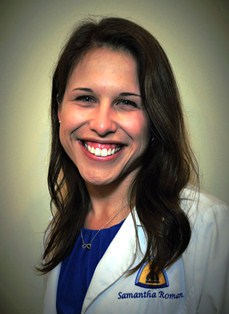Medical school prepares students extremely well for the content of standardized exams, the material we are expected to know on the wards, and how to interact with and examine patients. But nothing had prepared me for the pain; suffering; and, at times, utter devastation I would witness in the hospital. No instructor had told me how to provide comfort to patients and families in situations without a happy ending. And although there were suggestions of self-care, no one had ever told me, "You will be affected by these experiences. Make a plan for how to cope with it now."
It's difficult to share these experiences with anyone not in medicine—it is not something that is comfortable to talk about. When friends or family ask, "How was your day?" it is infinitely easier to answer "long" or "tiring" or "okay" rather than delve into the hundreds of emotions you may feel throughout the day. It's much more difficult to start a conversation about your emotional reaction to the patient who is slowly dying from an autoimmune disease, with his wife by his side, hundreds of miles from his home, who requires infusions he can't possibly afford. Or how you're wondering what to say to another patient dying more rapidly of liver cancer because of the hepatitis C he contracted 30 years ago from a needle stick while taking out the trash at a local hospital.
The year 2015 was big for me; in many ways, it was one of the best years I have had. But entering the third year of medical school also made 2015 the most challenging year I have experienced academically, professionally, and personally. Passing step 1 prior to the transition is no small feat—most students study for at least 2 months to pass step 1 of the USMLE, often feeling extremely incompetent and isolated along the way. As an aside, recently, my medical school transitioned to a financial aid application through CollegeBoard, a website I haven't thought about since high school. It reminded me that my SAT scores were in the 99th percentile; meanwhile, I struggled all summer just to achieve an average score on step 1 and was wrought with anxiety during the entire process.
After passing step 1, it can, at times, feel that we are "thrown to the wolves," working with a new set of residents and attendings every few weeks. The expectations of our roles and responsibilities are constantly changing, sometimes even within the same team. We are exposed to a new work environment every month or so, where it's easy to get lost and difficult to know how to ask hospital staff for help without feeling like a burden. And, as if the long hours, new environment, and exposure to morbidity and mortality aren't enough, sometimes we actually have personal struggles completely outside of our education. This past year, I learned how odd it feels to be trained as a doctor and at the same time have to assume the role of a patient.
Yet, despite my personal and professional struggles, there were definitely days that reminded me of the reasons I am going into medicine in the first place. Nailing a diagnosis, giving a stellar patient presentation to the team, providing hope to a patient, or comforting a grieving family and later receiving the sincerest thanks and gratitude—these are just a small sampling of the experiences that kept me motivated and passionate. But some days were harder than others to appreciate the small victories, particularly when sleep deprivation or burnout was beginning to set in. As spring break approaches and I can see the light at the end of the third-year tunnel, I reflect on the last year and pass on the following advice to rising third-year students:
1. Get enough sleep. Prioritize it over studying. You will get so much more out of your time in the hospital if you are well-rested. You will be more patient and empathic for it and will be rewarded in the deeper relationships you are able to build with your patients and their families.
2. Let yourself experience emotional reactions—good and bad. DO NOT ignore them or think you are weak for feeling. Share your thoughts, emotions, and reactions with family, friends, and mentors—anyone who will listen—or at the very least begin a practice of journaling or blogging. Most of your experiences in the hospital will be positive ones, but we cannot pretend the bad ones don't exist or that they don't in some way affect us.
3. Make a plan now for how to cope when you feel overwhelmed by experiences and emotions. Buy a journal, put Post-it notes with inspirational quotes around your apartment, commit to weekly meditation—something! But make a plan, and stick to it!
4. If you don't already know what it is like to be a patient, ask your patients to tell you about it!
5. Spend any free time you get with your patients—prioritize it even over sneaking in 15 extra minutes of studying. You will never learn everything in the textbook, but you will learn so much from interactions with your patients and will remember those lessons for a lifetime.
|
Samantha Roman |
 |
Back to July 2016 Issue of IMpact

